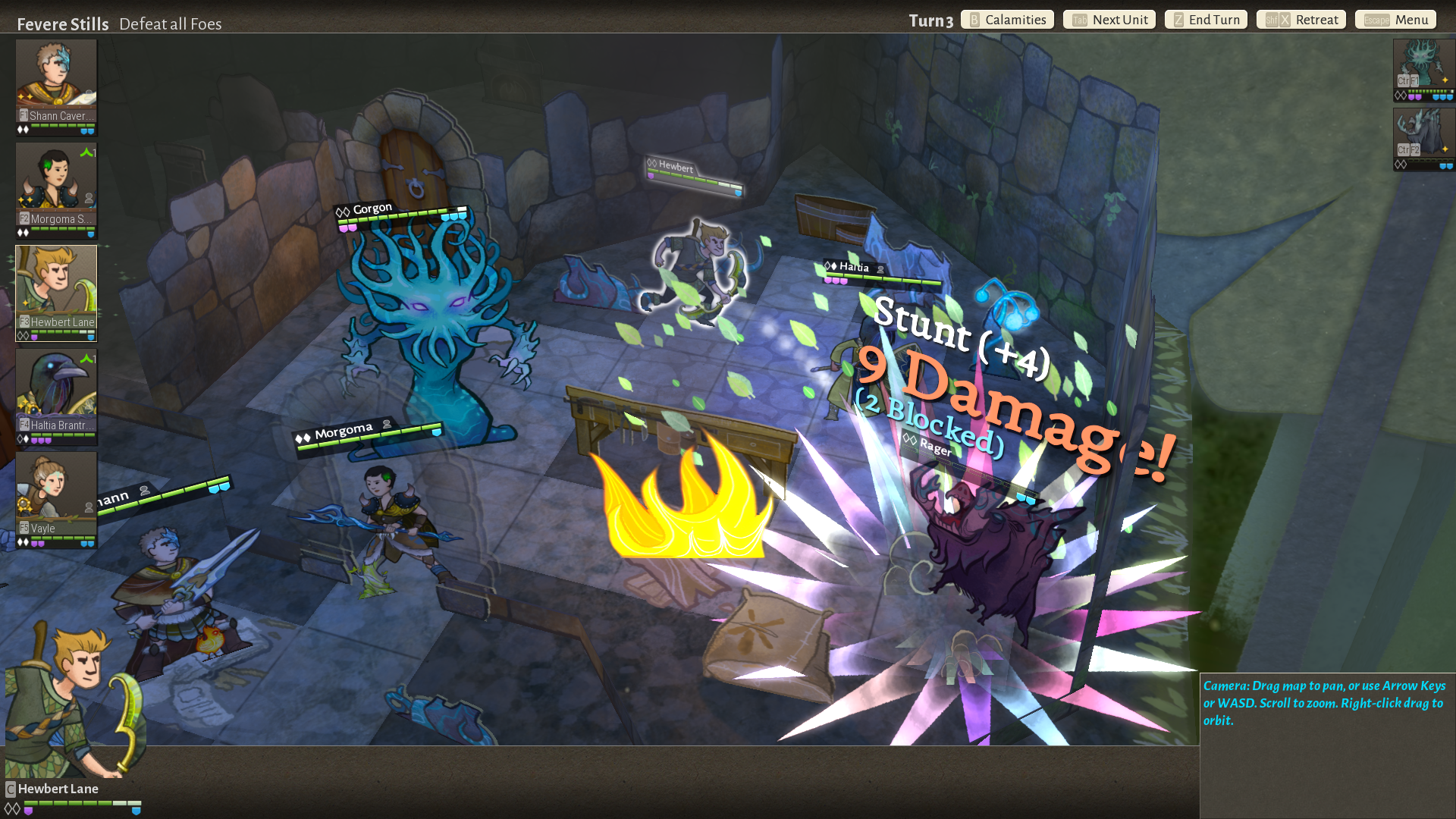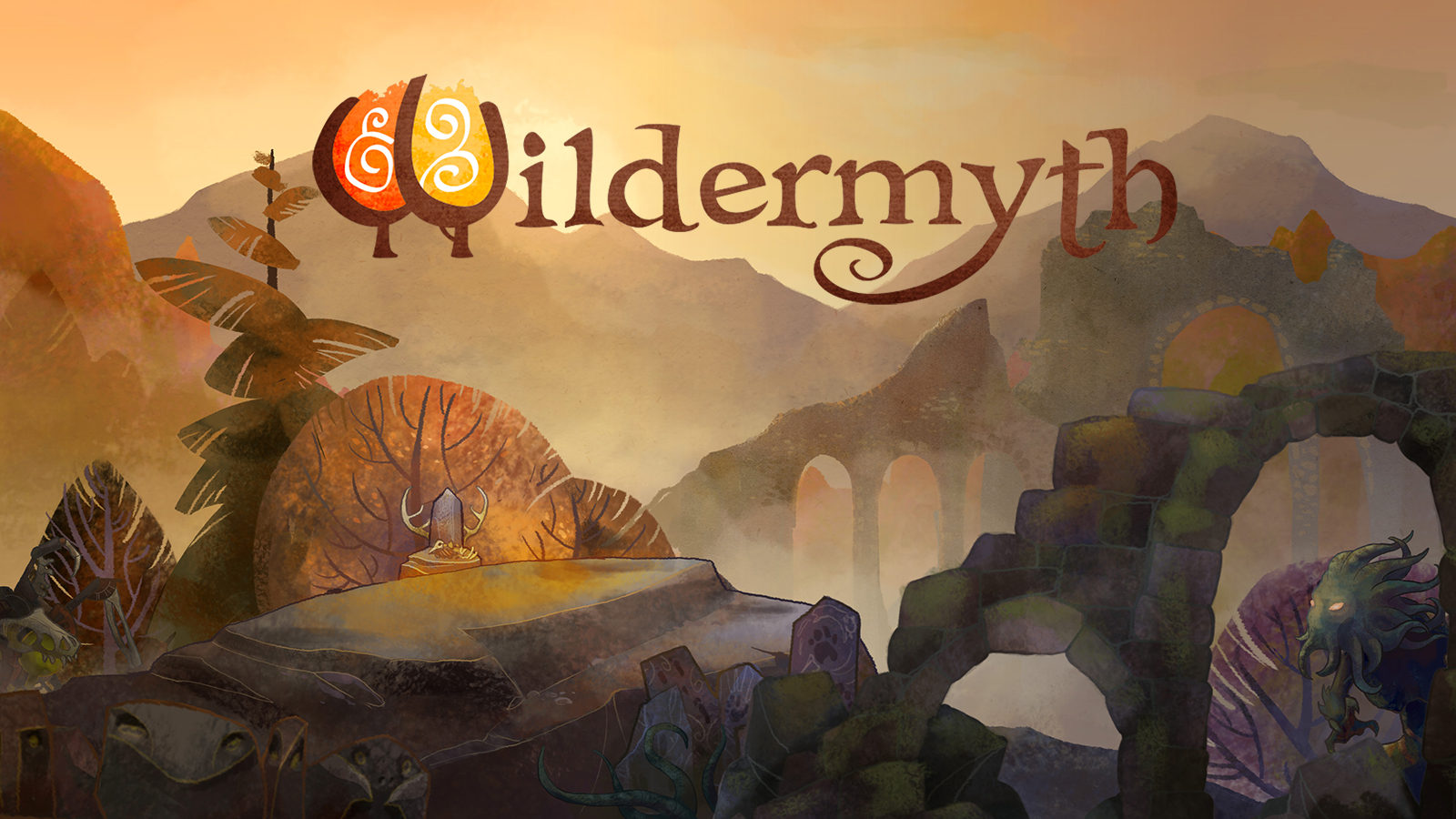

It can take a bit to get used to (and paper dolls’ heads tilting to look up never quite works), but it's a very clever way for an indie game to grant the illusion of having the resources to let you do whatever you want with your party members.

And the cartoonishly exaggerated items like magical swords or spiked shoulderpads you find along your quest all tend to pop up remarkably nicely, even on the combat screen. Each body can be customized for height, size, gender and presentation, hair, face, and colors in a surprisingly effective manner given the apparent simplicity of the art style. Some of this is stylistic Wildermyth uses a flexible paper doll system for its character models, kind of like a less grimdark Darkest Dungeon, and each face can age, get magically corrupted, or become scarred if characters are defeated in combat. Wildermyth's responsiveness to what happens in its campaigns is also one of its traits that brings the whole game together. Transformations have neat effects too, both adjusting the party member's stats and giving them exciting skills, like my flame-handed Mystic having the ability to shoot streams of fire from her hands at will. Both of those possibilities grant tactical buffs: rivalries cause pairs of characters to inflict more critical hits (called Stunts in Wildermyth's system) as the two compete in battle like Gimli and Legolas, while romances mean characters deal extra damage after their lover gets hit. That spice isn't just in the plot, though. Character relationships are important, too – those default to friendship, but Wildermyth can toss some familial relationships at you, and either your choices or random events can lead to romantic entanglements or rivalries, both of which add some fun storytelling spice beyond the preset traits. I've had characters grow wings from meeting capricious wanderers, start turning into gemstones based on their greed, or commune with a fire spirit and have their body start to turn to flame. The presence of certain traits means that even when you’re seeing the same stories multiple times, they can feel different based on which characters are involved.Īnother fun effect is occasional character transformations as campaigns progress. These personality traits are used in stories in ways that have the characters reacting to events in the proper ways, and some stories seem to be set up to only pop up when characters of specific traits are in the party. Each character in your party has three important character traits, like being a dreamer or a weirdo or having potential or carrying a lot of shame. More than that, however, the writing is flexible.
#Wildermyth character creation how to
These vignettes can range from the somewhat generic for setting up a fight – a character falls down a hole and the other party members have to decide how to save her – to the intensely mythic, like a mysterious giant shape passing in the night, granting the party a reputation bonus simply for being able to tell the story of what happened in bars and at festivals for the rest of their lives.

In a touch that reminded me of the way Metal Gear Solid 5 starts its levels by crediting the designer, Wildermyth includes a title screen for each short story that includes the author’s name. Each section of the story is told with a little comic book-style cutscene, and Wildermyth uses those creatively to grant the illusion of movement. The first of these is that the writing is, well, really good. After that, they pick their classes, learn to fight, and roll into the main campaign map. These origin stories are usually well-told the intro in the tutorial with the character who became my spellcasting Mystic, Fern, reading a book and then having that book become part of her life stuck with me through the entire campaign and beyond. This opens with a party of three or four randomized or customizable characters being launched on the path to adventure. First, you pick from one of a small set of campaigns, which can either be randomly generated or have a pre-written main plot. Roll, Heroes, Rollĭescribing Wildermyth in broad strokes can make it sound like a conventional RPG. It's one of those games that captures that lightning in a bottle. Worldwalker Games' story-centered tactical RPG Wildermyth is as ambitious as games like Pathfinder: Kingmaker or Alpha Protocol – but with far fewer glaring flaws to look past. It's also a dream that can never be achieved (barring some terrifying breakthrough in AI), but that makes the ambitious attempts all the more exciting when they make baby steps of progress.


 0 kommentar(er)
0 kommentar(er)
